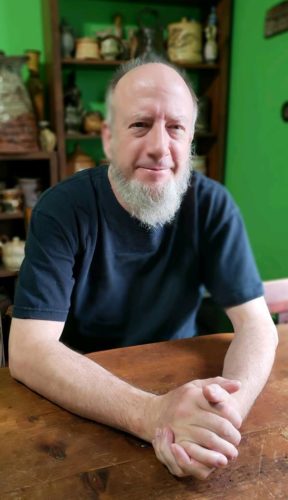In Listen vs. Tell I spoke of the necessary switch from telling people about our work to listening to them as a pre-requisite for effective communication.
As happens not infrequently, Carter Gilles responded thoughtfully and at length. He has given me permission to share his expansion on my thoughts here.

This particular phrasing [Listen vs. Tell] reminded me of the work that the philosopher Carol Gilligan did I think in the 80s. She has been criticized for framing her distinction in gender terms, and this is a bit unfair (she was not giving the final word but hoping to open a conversation). Her main point was that there are two different styles that we have in acting in the world and how we self identify. For me it seems they map directly onto the distinction you are making. She makes the point that “women define who they are by describing relationships. Men define themselves by separation, or the use of “I” statements.”
In other words, the ‘male perspective’ embodies a sort of atomic conception of how things work, where the individual and his/her actions are isolated and act on others from the outside. The ‘female perspective’ by contrast embodies a conception of our actions that specifically live in the wider context of a community or conversation. The sense things make is from the INSIDE of these frameworks.
“Listen vs. tell” seems to capture some of that emphasis in that when we base a relationship merely on our own ability to tell things to others we treat ourselves and others as separate and isolated. When we listen there is an admission that we are merely a part of some larger whole, a conversation or a community, and that the role we necessarily share with others is active and engaged.
I know you are searching for ways to phrase these ideas and help others make better sense of what you have in mind. There are happenings in so many fields that parallel what you are attempting to do. Your allusion to the internet styles was spot on, of course.
One other distinction I find interesting that has some relevance to your ideas is the political analysis of George Lakoff who describes two basic styles of expectation for the role of government. He suggests that conservative minded folk have a more hierarchical expectation where there are defined roles and that the duty of a government is something like a strict parent, to keep folks in line and defend the borders/ideals. Liberals by contrast are folks who expect government to function by caring for the needs of the folks represented. Rather than handing down the law, the idea is seeing what things are necessary or important from the point of view of constituents as self-described, and then building out from there. “What matters to you?” rather than “This is important despite what you think.”
How I believe this relates to your distinction is that the strict parent version defines the role of those who tell us what is important and the rest are on the receiving end, much like in your “We Tell” version. The nurturant parent model is much more concerned with getting to know the people affected and to represent their unique circumstances and beliefs.
It’s wonderful to be able to take advantage of the insights offered by people smarter than I! Many thanks, Carter
Engage!
Doug
Carter Gilles is a working artist, a longtime arts instructor, and practicing Philosopher living in Athens, Georgia.
